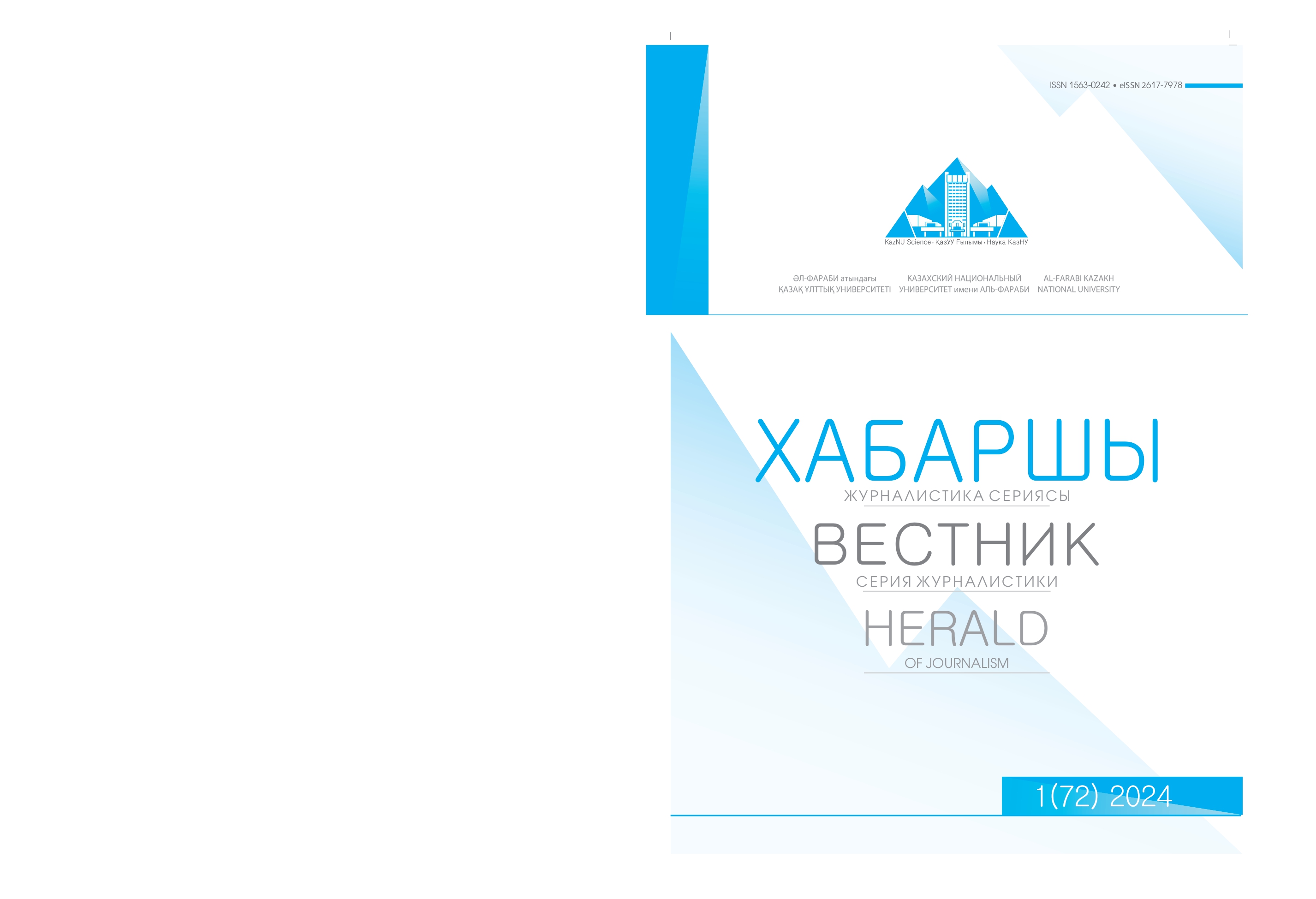The problems of the creative industry in the media: knowledge economy and world experience
DOI:
https://doi.org/10.26577/HJ.2024.v72.i2.8Keywords:
media, creative industry, creative economy, digital culture.Abstract
The article analyzes the problems of the creative industry in the media and the directions of development of the knowledge economy based on the world experience. The emergence of the creative industry coincided with periods of crisis in countries around the world in the 2000s. Therefore, it was necessary to use it as an antidote to the crisis. The rapid development of this industry has influenced the growth of spending in the economic and cultural spheres. By improving the creative industry, new jobs were created and the preconditions for a “creative economy” emerged. Innovative educational programs were created and effective cultural events were held.
The purpose of the scientific article is to contribute to expanding the scope of its application in improving the economic policy and foreign economic relations of Kazakhstan through in-depth consideration of models of global experience of the creative industry in the media. Social and statistical data were presented based on materials published in the media, as well as the works of domestic and foreign scientists.
Research on creative ideas has been conducted in Kazakhstan since 2021. The Atlas of New Professions has appeared, and opportunities have emerged to predict the various needs of the economy. The Atlas shows the main directions changing the labor market. It includes production facilities such as mining and metallurgy, oil and gas, agriculture, transport and logistics, energy, tourism, mechanical engineering and construction.
The study found that exports and imports of creative goods worldwide have doubled since 2002. The creative industry is rapidly growing in the US, UK, Germany, South Korea, Japan, New Zealand and Hong Kong.
The value of the research article is determined by in-depth coverage of the problems of the creative industry in the Kazakhstani media. The article also draws attention to research conducted by the British Creative Industries Council in Kazakhstan. Important data, such as registration of legal entities, employment, salary, are demonstated. As a result of the study, it became known that there are seventeen thousand creative industry enterprises in Kazakhstan.













